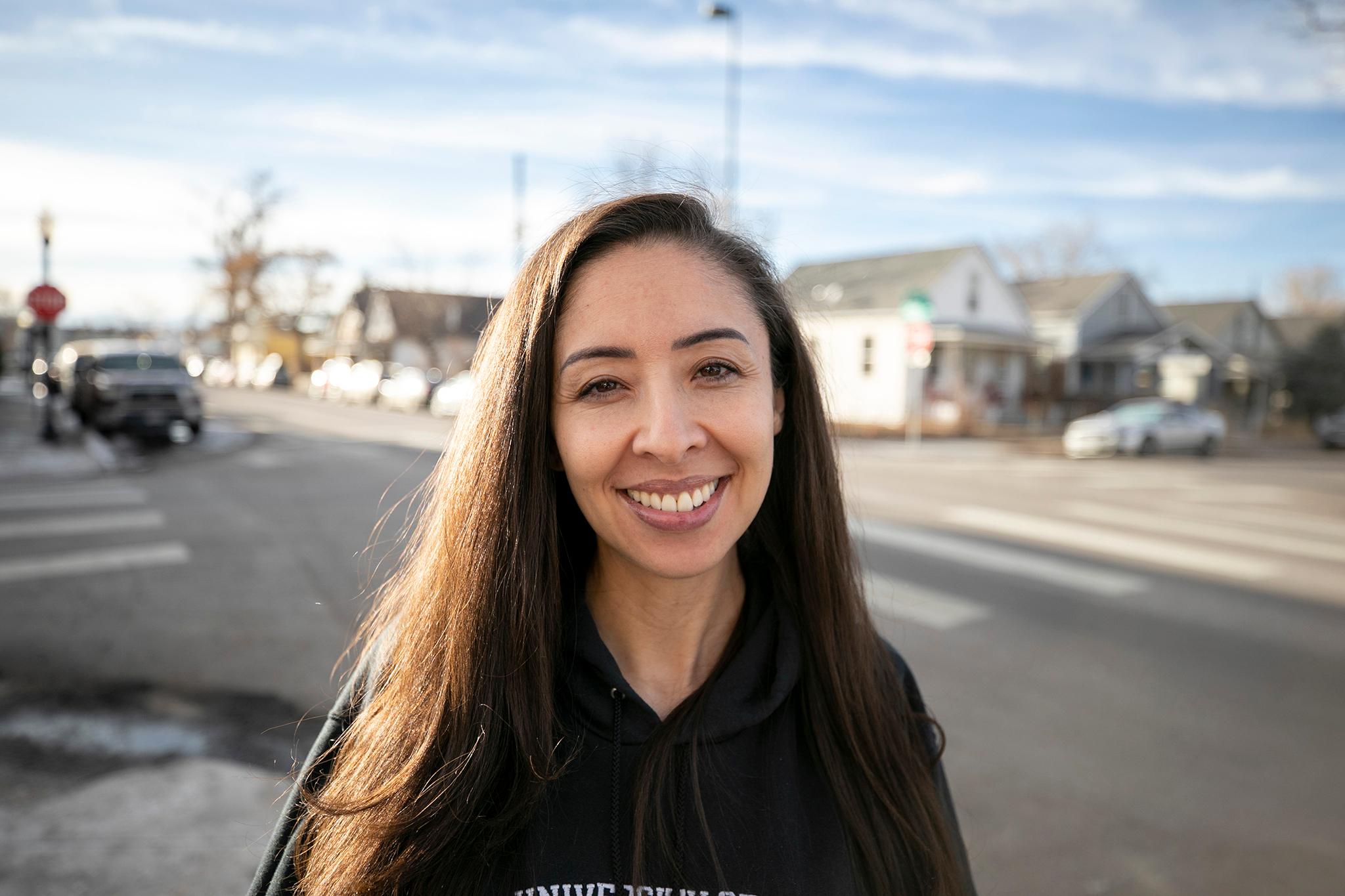Councilmember Candi CdeBaca previously said she won the 2019 District 9 race against incumbent Albus Brooks (a feat only five councilmembers have accomplished in 36 years) thanks to her community.
She hopes her wins, actions and votes over the past almost four years on council will bring out the community again and propel her to another term.
CdeBaca is running for reelection in the North Denver district against Kwan Atlas and Darrell Watson.
CdeBaca grew up in Swansea and is the first queer Latina and Democratic Socialist to sit on the dais.
Prior to becoming a city councilmember she was a social worker and community activist. She co-founded the GES Community Land Trust, now called Tierra Colectiva, and Project VOYCE, a youth empowerment organization. She also headed the Cross Community Coalition, a group that strongly opposed the Interstate 70 expansion. That project ultimately led to demolition of 74 homes in GES through the use of eminent domain.
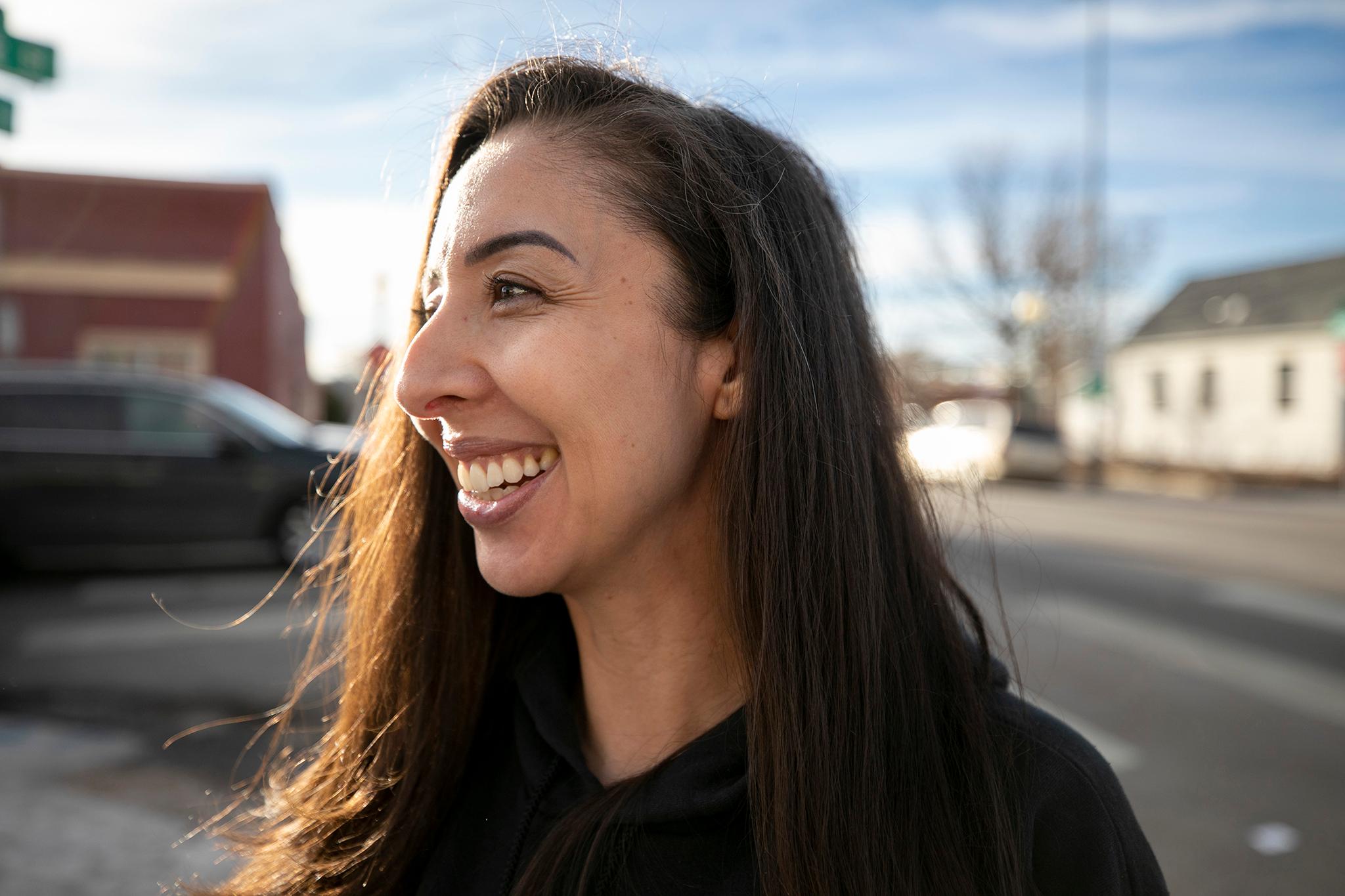
"One of the strengths that I brought to the seat was that I knew my community like the back of my hand before I got into office," CdeBaca said. "I was asked by community and the movements that were happening in community to run for office. So, when I got to office all of those community connections still remain...My table of advisors was those community organizations."
CdeBaca said one of her biggest accomplishments came from those community organizations' concerns. In 2019, CdeBaca spearheaded the decision to not renew city contracts with GEO Group and CoreCivic, both of which operated private halfway houses. CoreCivic also operates private immigration detention centers across the country.
Weeks after major protests against GEO's immigration facility took place in Aurora, both operators' contracts were up for renewal. Typically renewals don't receive much discussion, but CdeBaca secured a public hearing over the contracts and eventually Council voted to not renew the contracts.
"It's not practice for councilmembers to vote no against contracts," CdeBaca said. "They were seen as just a process we go through...It opened a lot of people's eyes about the process of council not voting down contracts but also about private prison operators running these halfway houses in the city. There is this revolving door that's created by private private prison operators...They're supposed to be getting people out in the community, but they don't rehabilitate them and end up cycling them right back into a private prison."
Another accomplishment, CdeBaca said she points to, is the passage of the right to counsel bill, which codified an existing program providing free legal services for low-income residents facing evictions. The bill, co-sponsored by Councilmember Amanda Sawyer, would help renters access attorneys for free and would apply to people earning 80% or less of the area median income. It also required landlords to tell tenants about the program.
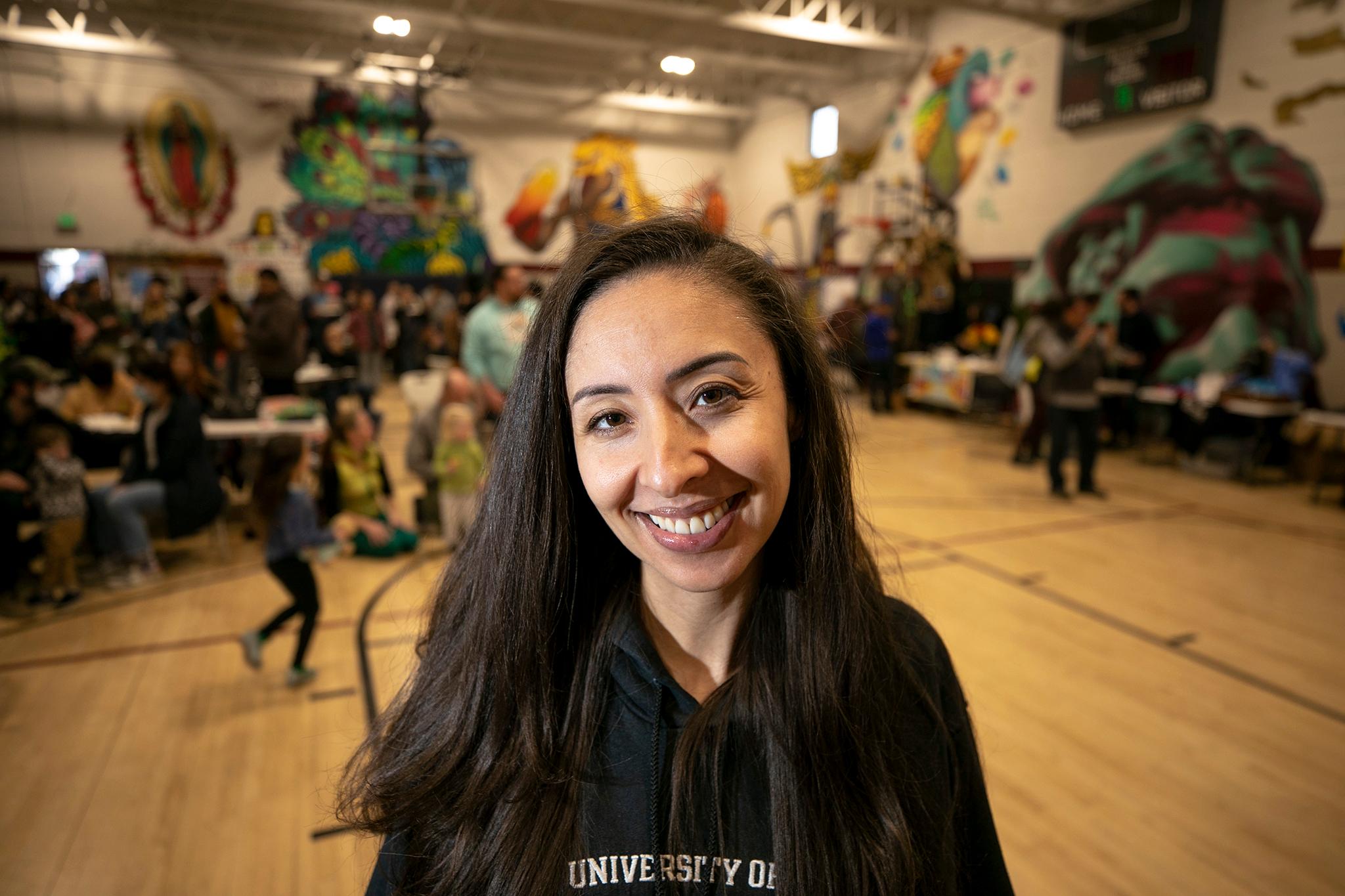
CdeBaca said she's also proud of several other policies and measures she was involved in passing, including the new wage theft ordinance, which provides stronger protections for workers against theft, a voter-passed measure that allows council to have the final approval on 14 appointees in key city positions and the expansion of the Support Team Assisted Response program that sends mental health responders in place of police officers to people in crises.
When it comes to community changes, Cdebaca said she's excited to see a grocery store coming to the GES area at the base of the Viña Apartments, next to the new Tepeyac Community Health Center. The effort came out of a food desert stakeholder group she started, which has since turned into the East Denver Food Sovereignty Initiative.
Another community change CdeBaca said she championed, was the construction of deeply affordable housing in her district, including the Viña Apartments, Charity's House and the houses on Tierra Colectiva land. There's also the proposed project at 4995 Washington apartments. It's still in the development phase, but there will be at least 170 income-restricted units for those making 30% to 80% of the area median income. For a family of four, that's a salary range between $35,150 and $89,400.
CdeBaca plans to pursue more housing options for lower AMIs if she is re-elected.
Affordable housing was the topic of a mailer sent out in January, with no note of who paid for or sent the ad, pointing out CdeBaca's "no" vote on the Expanding Housing Affordability policy, which mandates that developers building 10 or more units set aside 8% through 15% of the apartments for those making 60% to 90% AMI.
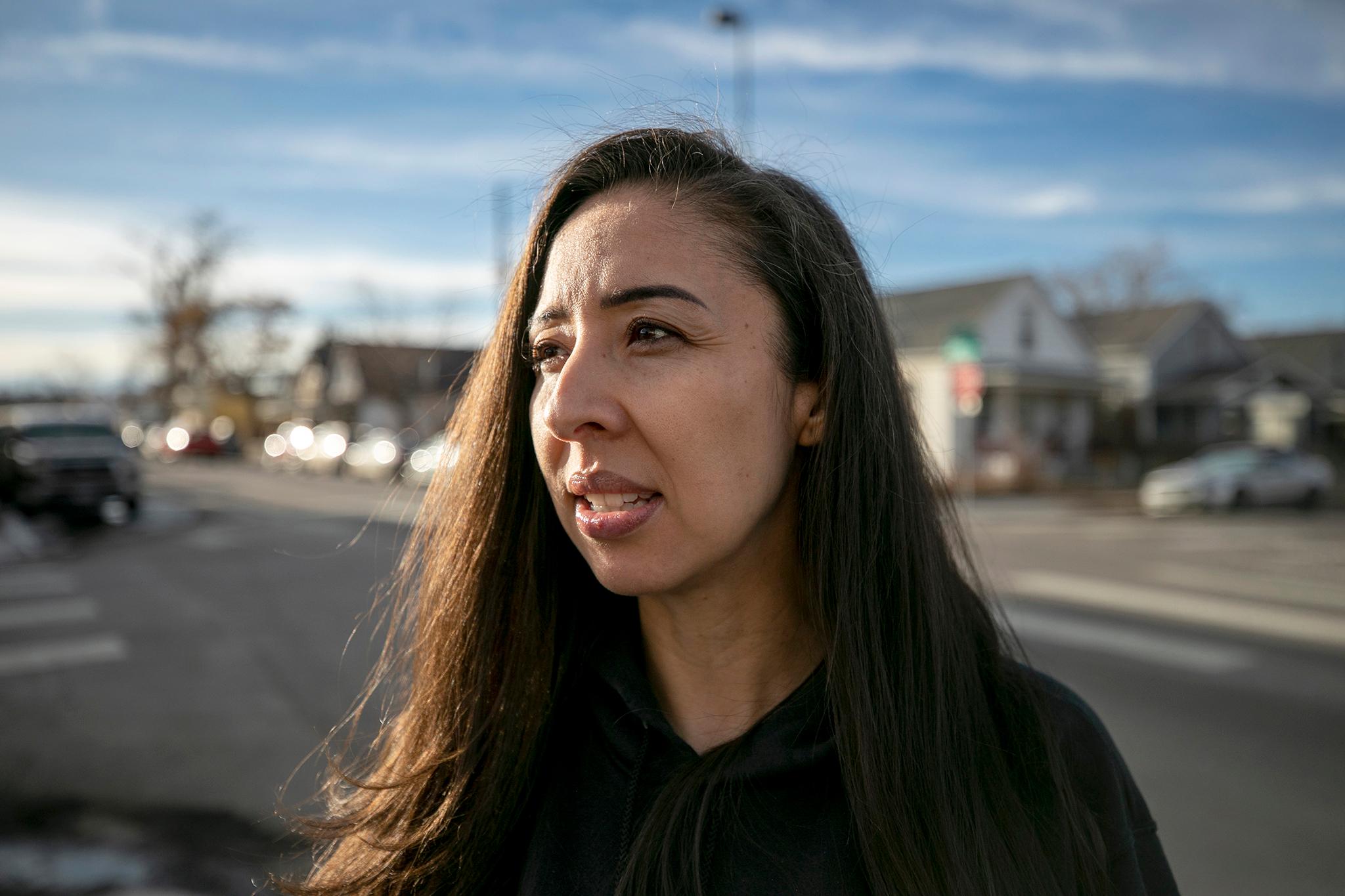
CdeBaca previously said the policy didn't require enough affordable housing nor did it provide housing for those at lower AMI levels, which she considers "the city's greatest need."
"When I educate people about what AMI is and how it fluctuates from year to year as we grow and gentrify on a larger scale, it's easier for people to recognize that affordability is always reliant on the unaffordable units we're creating," CdeBaca said. "When you make a development with 90% unaffordable units, you're densifying the area with a higher AMI, which will change the city's AMI for the following year. So, all those affordability brackets, they're rent goes up because it doesn't stay locked in. Rent changes based on the AMI."
This is currently occurring at the Viña Apartments, according to Denver7. Tenants reached out to the news organization noting that they're rent was increasing by 12% due to higher AMI levels in the city. The Colorado Housing and Finance Authority told the news outlet that typically rent increases "an average of 5% annually" but 2022 saw an "unusual" increase "by 11%-12%."
CdeBaca said this is why the affordable housing policy in the city is flawed and why she supports rent stabilization.
"You've got a whole population that just got into affordable housing that now have to search for lower levels of affordable housing because they can't afford the affordable housing they got into," CdeBaca said. "There's no mandate to maintain the people [developers] get into their units for the long haul."
CdeBaca's "no" votes are a topic frequently brought up by her opponents, but in a recent newsletter, she said "of the over 5,100 votes I've cast in City Council and committee meetings, I have voted 'yes' 95% of the time."
On the mailer itself, CdeBaca said what was written didn't make her upset, but the "manipulation tactics" of the mailer enraged her.
"I have been very clear, very vocal about every single one of my 'no' votes," CdeBaca said. "What I got angry about was the manipulation tactics that are used against poor people, disengaged people, people who don't have the privilege to seek the information in the same way that privileged people do."
Besides affordable housing, CdeBaca said she wants to work with the GES Coalition and the land trust to secure more land and get back a parcel of land taken during the I-70 expansion that some in the community want to use for more housing.
CdeBaca plans on working on more ordinances surrounding pollution and securing more open spaces to address pollution. Partnering with Councilmembers Jamie Torres and Jolon Clark, CdeBaca said she wants to continue working on mobile home preservation. In terms of preservation, CdeBaca said she's also helping community members work on turning Elyria into a historic cultural district.
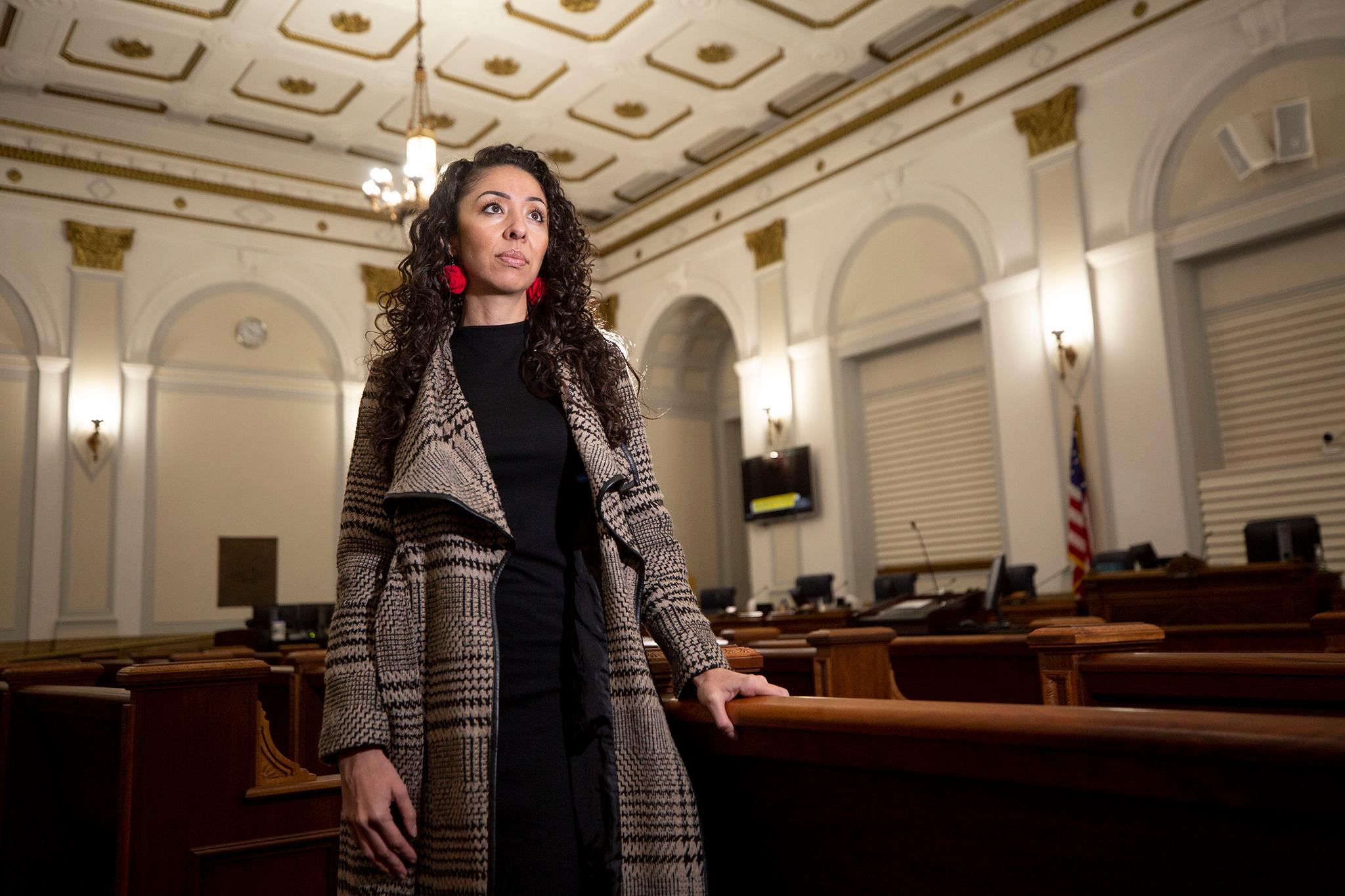
CdeBaca said she also wants to create a "Community Bill of Rights," which would protect agreements between residents and developers.
She said it would be similar to a community benefits agreement, which typically focuses on social and economic impacts of developments. Some agreements include a specific amount of affordable housing or the inclusion of a community space such as a grocery store or retail.
The city is not directly involved in these agreements and CdeBaca said developers can renege on promises because it isn't a binding agreement. A Bill Rights would make those agreements a city issued if developers don't follow through.
CdeBaca said regardless of what folks may think of her "no" votes, her ideas or just her in general, her focus for the possible next term will be what community members in her district want.
"As a woman of color, who grew up in poverty in the most polluted zip code in America, we were quite accustomed to being an outside voice, a minority voice, an ignored voice, a marginalized voice," CdeBaca said. "The media portrays me as standing alone. My colleagues portray me as standing alone but I know when I'm standing on that dais, I'm standing with thousands of people from my community who have never had a voice."
This story was updated with context about rent increases at Viña Apartments.

